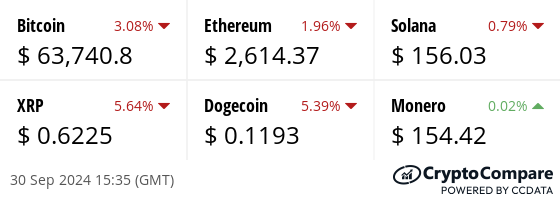Swan Bitcoin has filed a lawsuit against several former employees and consultants, accusing them of stealing its Bitcoin mining business with help from Tether, its former partner.
Former Chinese finance minister Lou Jiwei, speaking at the 2024 Tsinghua Wudaokou Chief Economists Forum in Beijing, urged China to carefully monitor advancements in cryptocurrency.
The U.S. Securities and Exchange Commission (SEC) has charged the teams behind the Solana-based decentralized finance (DeFi) platform Mango Markets with securities violations.
Top stories in the Crypto Roundup today:
- Swan Bitcoin Lawsuit: Ex-Employees and Tether Accused of Mining Business Conspiracy
- Ex-Chinese Finance Minister Cautions on Crypto as US Embraces Spot Bitcoin ETFs
- Mango Markets to Destroy All MNGO Tokens Following SEC Settlement
- Fed Interest Rate Cuts to Impact Stablecoin Revenues








